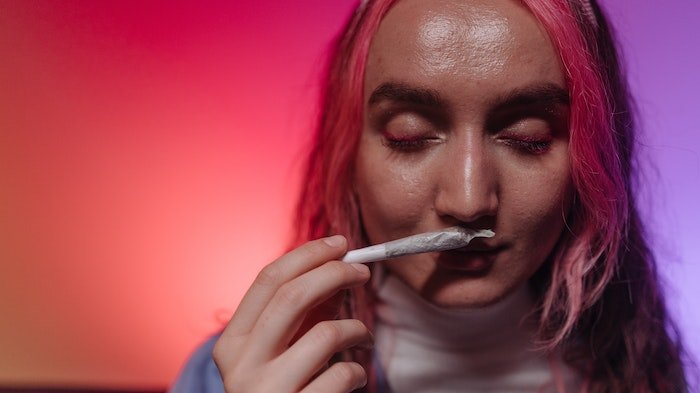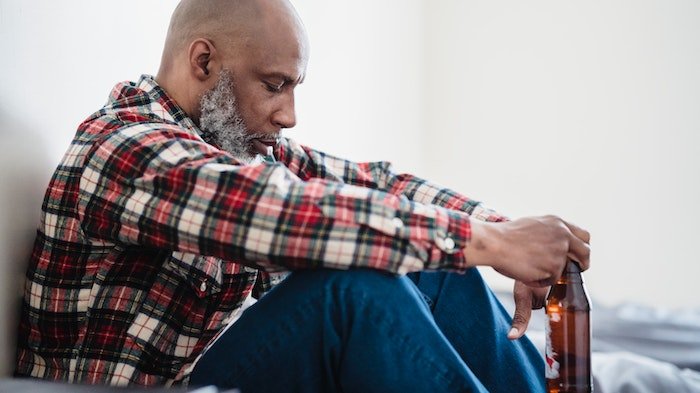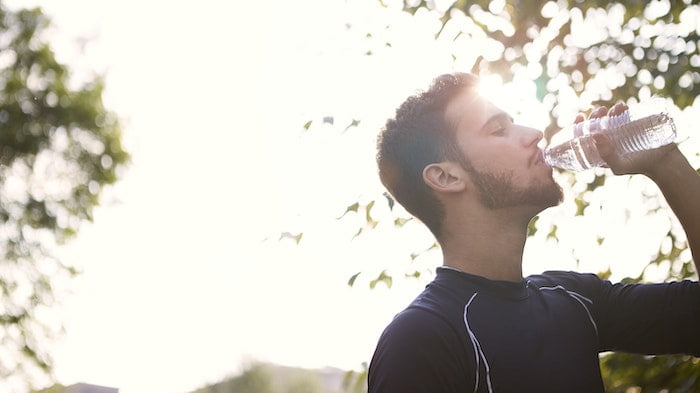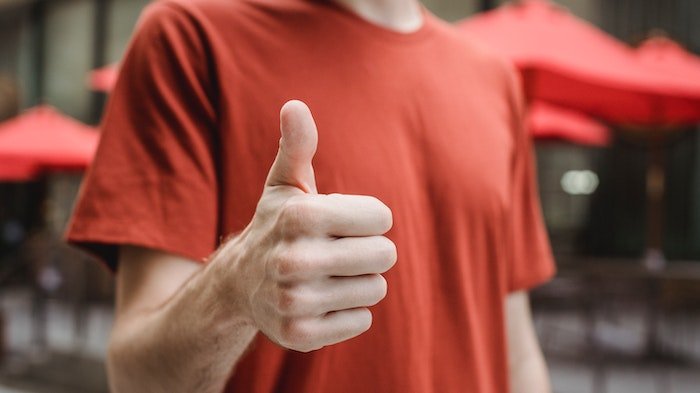Drug & Alcohol Rehab in Bermondsey
There is a drug and alcohol problem in South East London, and this impacts Bermondsey, along with other districts in the area.
For example, the alcohol problem in South East London is severe.
Studies show that renters in South East London are much more likely to be heavy drinkers than homeowners. Chronic alcohol abuse is also more common amongst the economically inactive. (1)
In many cases, heavy drinkers in South East London had a mental health condition that they were suffering with, which supports the evidence that mental health issues can spur on addiction. (2)
Perhaps the most severe consequence of the substance use crisis in South East London is the high levels of drug crime.
Drug-related crimes make up 4.2% of all crimes in South East London, and the number of drug crimes has risen by 8.8% from 2021 to 2022. (3)
South East London is better than North London and East London in terms of the number of drug crimes, but significantly worse than South West London. (4)
For more information about drug and alcohol rehab in Bermondsey, contact us today at 0800 088 66 86.
Is the Drug Problem Specific to Bermondsey?

No, the drug problem is not specific to Bermondsey or South East London. Unfortunately, the UK has a serious problem with drugs and alcohol, and it is not limited to just one part of the country.
An NHS report from 2018-19 tells us that 9.4% of adults aged between 16-59 had taken an illicit drug in the last year at the time of the survey. The figure for 16–24-year-olds was 20.3%. (5)
The recommended consumption of alcohol is less than 14 units per week. However, 23% of adults are drinking more than 14 units each week. (2)
In terms of demographics, men are twice as likely to use drugs than women, with 12.6% of men taking a drug in the last year, compared to just 6.3% of women. People living in urban areas are more likely to be drug users, with 9.8% of this group taking a drug in the last year, as opposed to only 7.7% of rural dwellers.
Overall, as you can see, there is a high rate of drug dependency and addiction in the UK, and this affects many different towns and cities, not just Bermondsey. That being said, London is one of the worst places for drug use, so the problem in Bermondsey is more severe than it is in most rural areas.
Why do People End up Addicted to Drugs?
A huge reason that people end up struggling with addiction is that they have experienced challenges in their life that have negatively impacted their mental health. This is subjective, so there is not one life event that causes addiction.
For example, one person may experience neglect and abandonment, and yet still not find themselves struggling with drugs and alcohol. Another person might go through a divorce, and start using substances to cope with the sadness, until they are eventually in the midst of a serious addiction.
People who are genetically vulnerable to addiction are much more likely to become dependent on substances when they are exposed to trauma. Even with no trauma, they may end up dealing with addiction at some point in their life. However, this is never a guarantee.
Some people are surrounded by people who casually use substances to relax, or take high doses of substances to escape their everyday life. This can cause the individual to perceive drug use as socially acceptable, and they may begin to engage with addictive behaviours due to exposure.
For more information about drug and alcohol rehab in Bermondsey, contact us today at 0800 088 66 86.
Is Alcohol Less Dangerous than Illegal Drugs?

No, alcohol is not always less dangerous than illicit substances. It depends on the type of illegal drug you are comparing it to, the health of the user, the doses taken, the frequency of use, and many other factors.
As you have seen from the alcohol statistics in Bermondsey and the UK in general, alcoholism is not something to be downplayed. It is a serious problem affecting many people in the UK, and it can cause serious illness or death. Many patients at drug and alcohol rehab in Bermondsey have an alcohol problem.
To give you a realistic picture of how alcohol misuse and alcohol addiction can ruin lives, here are some potential consequences:
- Job loss
- Poverty
- Legal issues
- Physical illness, e.g., liver disease, stomach ulcers, high blood pressure, colon cancer, pancreatitis, osteoporosis, immune system dysfunction, heart disease, and gastritis
- Death
How to Get Sober – Professional Treatment

Drug and alcohol rehab in Bermondsey has helped many drug users to get sober. Anyone with a dependency or addiction can go to rehab, even if you do not experience many symptoms of addiction, or you are functioning well in spite of your substance use problem.
It is important to remember that drug users often underestimate the severity of their addiction.
This means you shouldn’t solely trust your own judgement when deciding how serious your problem is – you should research common signs of addiction, talk to your family, and reach out to an addiction specialist.
If you get in touch with us on 0800 088 88 68, we can talk you through the signs of addiction, and help you to figure out whether you could have a substance use problem. We are also happy to discuss behavioural addictions, as the signs tend to be very similar.
Some other types of professional treatment you may want to look into (or ask us about) are outpatient programmes and home detoxes. They are two additional routes to getting sober, but they are less effective than drug and alcohol rehab in Bermondsey.
That being said, it is much more sensible to opt for one of these two addiction treatments than to delay treatment entirely.
All professional treatments can be carried out near to your home in Bermondsey. There are a wide range of drug and alcohol clinics in the area, from outpatient treatment centres to rehabs accepting both inpatients and outpatients.
As for the home detox, it goes without saying that this will not involve travelling, as it all takes place at your home.
Yet, if you did want to get sober away from Bermondsey, we could organise this for you. Our process is exactly the same no matter where you choose to get treatment, so it is no difference to us whether you would prefer to go to rehab in London, Liverpool, Leeds, or Manchester.
There are some potential drawbacks of recovering in a different area, but equally, it can be beneficial for some people. Generally, we say that going to rehab in Bermondsey is best if you have a supportive family, and you do not have the means to travel elsewhere.
However, if you want to get away from your current situation due to a lack of support, and you are able to commit to travelling to rehab, getting treatment in another part of the country may be just what you need.
For more information about drug and alcohol rehab in Bermondsey, contact us today at 0800 088 66 86.
How to Get Sober – Self-help

There are also tools you can use to get sober that do not involve going to drug and alcohol rehab in Bermondsey. Again, we want to emphasise the fact that private rehab is the most sensible option for people with a severe addiction.
However, if you know someone who is refusing to go to inpatient rehab, perhaps they would agree to get involved with self-help meetings. Eventually, they may build the courage and motivation to get in touch with a drug and alcohol rehab in Bermondsey about their inpatient programmes or outpatient treatment.
Self-help meetings allow people to meet others in their local area who are dealing with addiction, or who have dealt with it in the past. Sometimes, family members attend self-help groups to support their loved one emotionally, or to learn more about addiction.
There tends to be one person leading the self-help group, who ensures the sessions have enough structure, and everyone feels comfortable. They will not force anyone to speak, so you are able to go to a self-help meeting to check it out, without contributing.
Often, self-help meetings are based on spirituality. This is the case for 12 step meetings, including Cocaine Anonymous, and Alcoholics Anonymous.
You do not have to be religious to benefit from these meetings, but AA’s 12-Step model is spiritual by nature. For example, you will ask God to help you understand his will (but this could also involve asking a ‘higher power’ to guide you).
Other self-help groups, such as SMART Recovery, do not follow the 12 step principles. This is generally better for non-spiritual people, though they are also welcome to participate in 12 step sessions.
Self-help meetings do not just have to be for people who refuse to go to drug and alcohol rehab in Bermondsey.
They can also be used alongside other treatment methods. Many residential rehabs recommend local self-help groups to their patients, that they can join after rehab and continue to go to for as long as they like.
Some people attend these groups on a weekly basis for many years. This is not a sign of a weak addiction recovery journey, but rather a sign of determination to stay sober.
Not everyone needs to go to these meetings so frequently, but it is a great idea if you find that they keep you motivated and inspired to stay in long-term recovery.
FAQs About Drug & Alcohol Rehab in Bermondsey

Below, we include answers to common questions about the drug and alcohol rehab process in Bermondsey:
1. How long do people stay at rehab for?
Most patients go to rehab for 28 days, and they stay overnight for this entire duration. Others stay for a 10-day drug or alcohol detox or around 18 days of therapy (which may include family therapy, behavioural therapy, and holistic therapies)
There is also the option to enter rehab as an outpatient for outpatient treatment. The personalised treatment programme for outpatients is still around 28 days long.
If you get in touch with us about attending drug and alcohol rehab in Bermondsey, we will usually recommend that you stay for the full 28 days. We believe this is the ideal time for you to get sober, and though there is no such thing as making a ‘complete recovery’, you will be armed with all the techniques you need to stay sober after 28 days.
That being said, if you are nearing the end of a private rehab stay and you feel as though you need more time in treatment, you can let the admissions staff know, and something may be arranged for you.
2. Does everyone get an aftercare plan?
Yes, everyone at drug and alcohol rehab in Bermondsey gets an aftercare plan. This is the main form of relapse prevention planning. Patients are allowed to offer ideas for aftercare if they believe a particular tool would help them to stay sober.
We encourage you to explore the resources in your aftercare plan, and make it an important part of your life in your first year out of treatment. This is the best way to ensure you do not relapse.
If you end up relapsing, you will still be entitled to aftercare. Please do not worry about being judged if this happens, as it is very common for people to battle temptation when they are fresh out of rehab.
Unfortunately, once you have been out of rehab for a year, your aftercare plan will no longer apply. This means that you may have to stop going to therapy at the rehab facility, and you may no longer receive calls from them.
However, other aspects of your plan will still be relevant, such as attending self-help groups in Bermondsey. What’s more, you can continue to follow all of the guidance you have received at rehab, and as part of your aftercare, to keep your risk of relapse as low as possible.
3. Do rehabs follow harm reduction techniques?
In case you do not know, harm reduction is a kind of addiction treatment that values moderation over abstinence. Patients are still allowed to use substances, but in small doses.
Some private rehab centres do follow harm reduction methods, but the ones we work with do not. We prefer to select residential programmes that follow abstinence methods, as this keeps relapse rates as low as possible in Bermondsey.
We acknowledge that certain people will be able to consume drugs moderately, without eventually developing an addiction. However, given that addiction has a strong biological cause, we do not believe this is applicable to most people. Thus, the safest route to take is abstinence.
If you do not want to commit to abstinence, you should not register interest in a drug and alcohol rehab in Bermondsey. At rehab, you will be expected to get sober and stay completely sober, so the treatment plan will not be suitable if you are hoping to follow the harm reduction method.
4. Will my physical health be considered at rehab?
Yes, your physical health is a priority at any rehab clinic. You can take responsibility for this by going on walks, going to the gym, and getting involved with any active sessions they have on, such as yoga.
Due to the social element of rehab, it may be easier for you to take an interest in your physical health, as you may be inspired by other patients. It can also be easier to connect with other patients when you have a shared interest or focus, such as going to the gym.
However, it is not just your responsibility to take care of your health; the staff at rehab will also make sure your wellbeing is a priority. They will provide you with three healthy meals a day – all homecooked and containing fresh ingredients.
Early nights are also expected, as this gives you a chance to get enough sleep, which is crucial to your recovery.
Finally, if you experience illness at rehab (such as withdrawal symptoms during the detox phase), you will receive medication as soon as you need it.
For more information about drug and alcohol rehab in Bermondsey, contact us today at 0800 088 66 86.
Choosing a Drug & Alcohol Rehab in Bermondsey

To get started with your drug and alcohol rehab in Bermondsey journey, call us on 0800 088 66 86 and we will discover which type of treatment centre would be suitable for your recovery.
Though you are able to get in touch with any private rehab and ask for a referral yourself, we believe this process is much more efficient if you allow us to do the research.
This is because we already know what works for certain patients, and what doesn’t, so we can dodge any rehab scams and ensure you do not register with a rehab facility that is not qualified to deal with your type of addiction.
It is also recommended that you take some time to reflect on getting sober, and the challenges that will bring. It is much easier to do this when you are not having to reach out to dozens of treatment centres in your area, answering endless questions, dealing with rejections, and arranging visits.
We are skilled at liaising between our clients and our high-quality rehabs in Bermondsey, so we can often finalise a referral in just a few days. Is this something that appeals to you? If so, call us as soon as possible, and we will conduct a free initial assessment with you.
References
[1] South Associations between interrelated dimensions of socio-economic status, higher risk drinking and mental health in South East London: A cross-sectional study https://journals.plos.org/plosone/article?id=10.1371/journal.pone.0229093
[2] Ibid.
[3] South East London drugs crime statistics https://www.plumplot.co.uk/South-East-London-drugs-crime-statistics.html
[4] Ibid.


